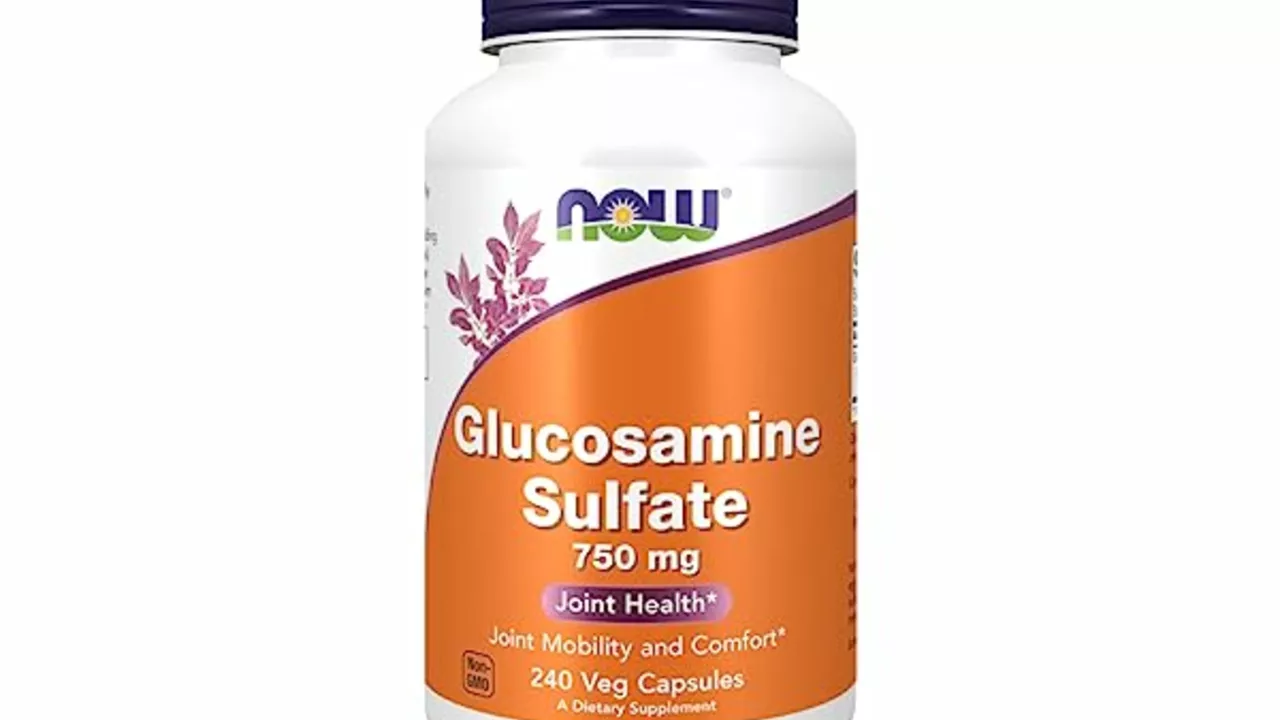Understanding the Basics of Plant Sterols
Before we delve into the benefits and importance of plant sterols, it's essential to understand what they are. Plant sterols, also known as phytosterols, are naturally occurring compounds found in plant cell membranes. They have a similar structure to cholesterol, a type of fat that circulates in our blood, which allows them to interfere with the absorption of cholesterol in our intestines.
Plant sterols are present in small amounts in many fruits, vegetables, nuts, seeds, cereals, legumes, and vegetable oils. You can also find them in fortified foods and supplements. Now that you have a basic understanding of what plant sterols are, let's explore their benefits.
The Cholesterol-Lowering Effect of Plant Sterols
One of the most significant benefits of plant sterols is their ability to lower LDL cholesterol, often referred to as 'bad' cholesterol. When we consume foods rich in plant sterols, they compete with cholesterol for absorption in our digestive system. This competition results in our bodies absorbing less cholesterol, which in turn leads to lower levels of LDL cholesterol in our blood.
Several studies have shown that consuming 2 grams of plant sterols per day can reduce LDL cholesterol by 10%. This makes plant sterols an effective and natural way to manage cholesterol levels and reduce the risk of heart disease.
Plant Sterols and Heart Health
As we've mentioned, plant sterols can lower LDL cholesterol levels. But how does this translate to heart health? High levels of LDL cholesterol can lead to the build-up of fatty deposits in our arteries, a condition known as atherosclerosis. Over time, this can cause the arteries to narrow and harden, increasing the risk of heart disease.
By reducing LDL cholesterol levels, plant sterols can help prevent the development of atherosclerosis and protect against heart disease. This is why many heart health guidelines recommend including foods rich in plant sterols in our diet.
Other Health Benefits of Plant Sterols
While plant sterols are most known for their cholesterol-lowering properties, they also have other health benefits. Some research suggests that they may have anti-inflammatory effects, which could be beneficial for conditions like arthritis and asthma. There is also some evidence that plant sterols may support immune health and have anticancer properties.
However, more research is needed to fully understand these potential benefits and how to best utilize them. It's always a good idea to discuss with your healthcare provider before starting any new dietary supplement or making significant changes to your diet.
Incorporating Plant Sterols into Your Diet
Now that you understand the benefits of plant sterols, you might be wondering how to include them in your diet. As we've mentioned, many plant-based foods are naturally rich in plant sterols. Including a variety of fruits, vegetables, nuts, seeds, and whole grains in your diet is a great way to increase your plant sterol intake.
Additionally, many companies now add plant sterols to foods like margarine, orange juice, and yogurt. These fortified foods can be an easy way to get more plant sterols, especially if you struggle to eat enough fruits and vegetables. However, it's important to note that these foods can also be high in added sugars and unhealthy fats, so it's essential to read labels carefully.
Plant Sterols Supplements
If you struggle to get enough plant sterols from your diet, supplements may be an option. Plant sterol supplements are available in various forms, including capsules, tablets, and softgels, and can be a convenient way to increase your intake.
However, it's important to remember that supplements should not replace a healthy diet. They are meant to supplement, not substitute, the nutrients you get from food. Always discuss with your healthcare provider before starting any new supplement regimen.
Potential Side Effects and Interactions of Plant Sterols
Plant sterols are generally considered safe for most people when consumed in moderate amounts through food. However, like any nutrient, they can cause side effects and interact with certain medications when consumed in large amounts or as a supplement.
Some potential side effects include diarrhea, nausea, and indigestion. Additionally, because plant sterols can interfere with the absorption of cholesterol, they can also affect the absorption of fat-soluble vitamins like vitamins A, D, E, and K. It's essential to discuss with your healthcare provider before starting a plant sterol supplement, especially if you take any medications or have any health conditions.
Final Thoughts on Plant Sterols
Plant sterols offer a natural and effective way to lower LDL cholesterol levels and reduce the risk of heart disease. They can be found in a variety of plant-based foods, as well as in fortified foods and supplements.
While they have other potential health benefits, more research is needed to fully understand these effects. As always, it's important to seek the advice of a healthcare provider before making significant changes to your diet or starting any new supplement regimen. With the right approach, plant sterols can be a valuable addition to a heart-healthy lifestyle.


Alex Grizzell
July 27, 2023 AT 07:56Just sayin'.
Rachel Harrison
July 27, 2023 AT 15:02Just don't overdo it on the fortified junk food. Read labels. <3
Tiffanie Doyle
July 27, 2023 AT 17:08Marcia Martins
July 28, 2023 AT 12:52John Bob
July 28, 2023 AT 19:05Rodrigo Ferguson
July 29, 2023 AT 10:52Mickey Murray
July 29, 2023 AT 17:20Kevin McAllister
July 30, 2023 AT 09:08George Johnson
July 30, 2023 AT 23:16Robert Bowser
July 31, 2023 AT 18:49Sue M
August 1, 2023 AT 11:39james landon
August 2, 2023 AT 08:34